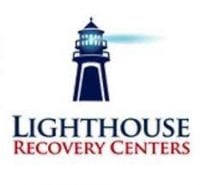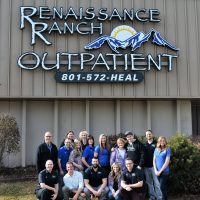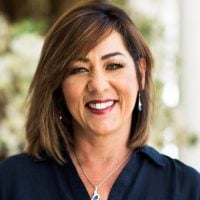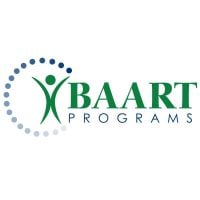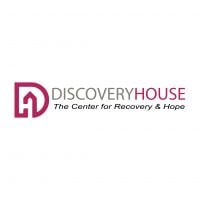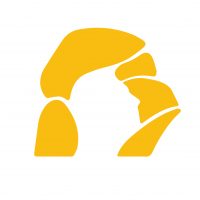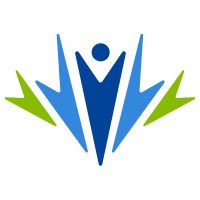Lighthouse Recovery Center
Drug Rehab Center in Midvale, Utah
Lighthouse Recovery Center is a private addiction and substance abuse treatment center that offers personalized and evidence-based treatment plans, family programs, and education and guidance to support successful recovery and long-term sobriety, and has achieved accreditation and licensure from nationally recognized organizations.
Multiple patients have reported Lighthouse Recovery Center as permanently closed.
Research other rehabs in Midvale, Utah, or get help finding an open facility.
About This Utah Facility
Lighthouse Recovery Center is a private addiction and substance abuse treatment center in Midvale, Utah. They offer comprehensive treatment plans to help individuals struggling with addiction and substance abuse issues. They specialize in personalized plans and treatments that center around evidence-based approaches. Lighthouse Recovery Center provides a safe, supportive environment to help individuals gain the skills they need to live life without substance abuse and addiction.
Lighthouse Recovery Center offers an array of services from individual and group therapy, to medication-assisted treatment, to Cognitive Behavioral Therapy, to mindfulness-based stress reduction. They also provide education and guidance for individuals to help them learn about addiction, build relapse prevention skills, and develop healthy lifestyle habits. In addition, Lighthouse Recovery Center offers family programs to help educate and support the families of individuals in treatment. This assistance is designed to provide the tools needed for successful recovery and long-term sobriety.
In addition to their treatment programs, Lighthouse Recovery Center is committed to providing quality care. They have achieved accreditation from The Joint Commission, a nationally recognized accrediting body, as well as licensure from the State of Utah. Their commitment to quality and excellence has also been recognized by organizations such as the Utah Department of Human Services, which named them as an approved provider. Lighthouse Recovery Center strives to provide the highest level of care, so individuals can feel safe and supported in their recovery journey.
Genders
Ages
Modality
Additional
Conditions and Issues Treated
Many people who struggle with opioid addiction need to attend specific programs like methadone , Suboxone or Vivitrol clinics.
These types of programs will provide the patient with legal, prescription medications that can help them overcome their cravings for illegal opioids like heroin or fentanyl . If the patient has a chronic condition like Hepatitis C, they must undergo treatment before they can begin taking these medications.
Levels of Care Offered at Lighthouse Recovery Center
This center offers a variety of custom treatment tailored to individual recovery. Currently available are Detox, Drug Rehab, Intensive Outpatient, Intervention, Outpatient, with additional therapies available as listed below.
An addict may have to go through alcohol or drug withdrawal. While detox may be uncomfortable, it is not life-threatening. Detoxification allows the addict to rid the body of all traces of drugs or alcohol and gives the addict a clean slate for their recovery. In an inpatient or outpatient setting, detox can be managed medically.
Outpatient addiction treatment is beneficial for people who are able to function well in their day-to-day lives. It is recommended for people who are not yet ready to end their relationships with friends or family members who might be encouraging drug and alcohol use.
Intensive outpatient treatment is beneficial for:
- People who are able to attend treatment more than 3 times per week.
- People who do not meet the criteria for inpatient treatment.
- People who are able to contribute to their own recovery outside of the treatment center.
- People who are motivated towards recovery.
- People who are able to overcome addiction on their own without the need for higher levels of care.
Outpatient treatment programs provide drug and alcohol addiction treatment through individual sessions with a counselor, group therapy, 12-step meetings, and other activities to help individuals gain sober living skills. Most programs are designed for those individuals who have completed a medically supervised detoxification program and provide opportunities for clients to begin the process of early recovery.
Outpatient programs also offer a level of medical support as needed and psychological backing through therapy. Clients are encouraged to live at home, though there may be some flexibility regarding this requirement based on the circumstances and needs of each patient.
Outpatient treatment is perhaps the most common type of dual diagnosis program available. It does not pose a significant financial burden on patients. However, it is essential to note that outpatient treatment does not provide the support and supervision given in residential programs. Some addicts may need this level of support to maintain their sobriety.
Intervention services are often the last resort for addicts. An intervention begins when family or friends gather to discuss how addiction has harmed their loved one’s life and why treatment is required to help them move forward into a healthy future. The discussion includes information on various treatments in case your loved ones agree that this is necessary at some point during the conversation.
Therapies & Programs
Therapy sessions focused on the individual addict can provide much-needed guidance as they work toward overcoming their addiction. These types of sessions typically involve guidance from a therapist, who will help addicts identify and process their feelings and cravings.
During these sessions, addicts may develop plans for coping with the triggers that typically lead to relapse and learn how to avoid those triggers during their recovery process.
The main goal of family therapy for drug addiction is to create an environment where communication can occur without judgment, hostility, or blame that often occurs within a family.
Family therapy is a type of group problem-solving that aims to improve communication and relationships between the patient, their family, and sometimes friends. The therapist is with the family as they learn to communicate with each other differently, especially with the addict when s/he is using.
The family can learn to reduce their enabling behavior or rally together and support each other during tough times. The patient also learns how to deal with their addiction and maintain sobriety while interacting with the family.
Different types of addiction treatment services are available. Within this article, group therapy is of interest due to its high success rate compared to individual therapy. Group therapy settings are beneficial because they allow recovering addicts to build a strong support network.
Benefits of group therapy are:
- Reduces feelings of isolation
- Immediate access to social support in the form of fellow addicts in recovery
- Lowers risk of relapse
- Increases rate of sobriety
- Builds coping skills that can be applied to everyday life
Those struggling with addiction in Utah can benefit from learning certain life skills. It is not as simple as quitting drinking or taking drugs and thinking that the hard part is over. Being sober means living a whole new way of life. Many recovering addicts have found that they need to develop talents like time management, organization, communication skills, socialization skills, and self-esteem to make their life in sobriety work.
Drug and alcohol addiction can lead to a breakdown in life skills. Learning certain life skills can help those who are struggling with addiction. Life skills training at Lighthouse Recovery Center in Midvale, UT teaches patients skills such as time management, budgeting, and social abilities to improve their quality of life and prevent relapse.
An addict’s life skills are maladaptive, meaning they are counterproductive. An addict may have learned poor time management skills growing up, have a hard time budgeting money, or be socially awkward. An addict’s poor life skills can lead to relapse and the inability to achieve long-term sobriety. Life skills training teaches patients effective coping mechanisms, which can help them live a clean and sober life.
Payment Options Accepted
For specific insurance or payment methods please contact us.
Is your insurance accepted?
Ask an expert, call (888) 674-0062
Additional Details
Specifics, location, and helpful extra information.
Midvale, Utah 84047 Phone Number(385) 220-2222 Meta DetailsUpdated November 25, 2023
Staff Verified
Patient Reviews
There are no reviews yet. Be the first one to write one.
Midvale, Utah Addiction Information
More than 500 people in Utah die each year from the effects of drug abuse and/or addiction. Substance abuse rates in Utah have seen an upward trend for a variety of drugs. Opioids are involved in almost 70% of all drug-related deaths in the state, annually. In 2014, Utah officials created a Good Samaritan Law to protect drug users who report possible overdoses from being prosecuted themselves.
1 out of every 10 people aged 12 and over living in Midvale has a substance use disorder. Of those 5,000 people, only about 3,500 will get any treatment.
Treatment in Nearby Cities
- Beaver, UT (166.2 mi.)
- West Jordan, UT (1.5 mi.)
- Eagle Mountain, UT (21.3 mi.)
- South Salt Lake, UT (7.4 mi.)
- Bountiful, UT (19.2 mi.)
Centers near Lighthouse Recovery Center
The facility name, logo and brand are the property and registered trademarks of Lighthouse Recovery Center, and are being used for identification and informational purposes only. Use of these names, logos and brands shall not imply endorsement. RehabNow.org is not affiliated with or sponsored by Lighthouse Recovery Center.
